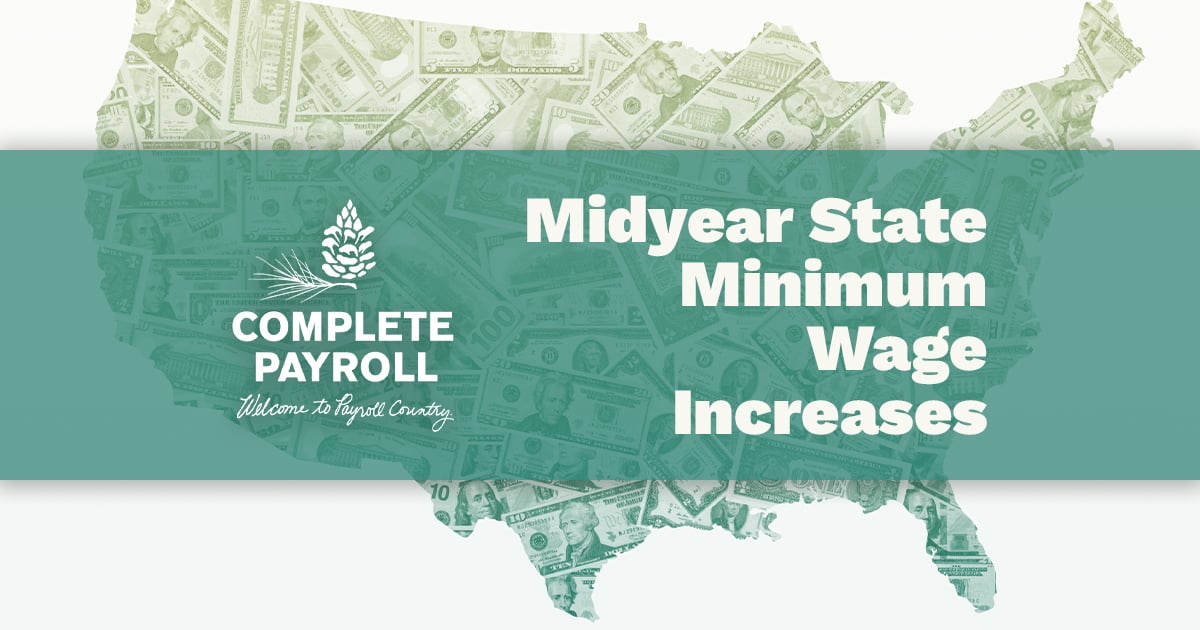Federal Minimum Wage
Overview of Law
The current federal minimum wage is $7.25 per hour. The current minimum wage for federal contractors who have services covered by the Service Contract Act, or concessions and services in connection with federal property or lands, is $10.35. Employees must be paid at least the federal minimum wage unless neither the organization nor the employee is covered by the Fair Labor Standards Act (FLSA). If a higher state or local minimum wage is in place, employers must pay the higher rate. State and local minimum wages often apply to all employers, even if they are not covered by the FLSA.
There are ways an organization or employee can be covered by the FLSA:
Enterprise Coverage
This applies to all businesses whose annual gross volume of sales or business done exceeds $500,000. In addition, the law specifically includes businesses engaged in the operation of a hospital or a facility that cares for and houses the elderly or people who have a physical or mental disability. The law also includes all schools and public agencies. If an organization has enterprise coverage, all of its employees are covered by the provisions of the FLSA.
Individual Coverage
Even a business that is not covered under Enterprise may have individual employees who are covered under the provisions of the FLSA. If an individual is engaged in interstate commerce, production of goods for interstate commerce, handling or working on goods or materials that are moving in interstate commerce, or is involved in an occupation that is closely related or directly essential for the production of goods for interstate commerce, that employee is covered on an individual basis. The Individual category includes those who work in communications or transportation, or who regularly use the postal system or telephone for interstate communications. Even employees of the smallest businesses may be covered on an individual basis. For example, individuals who accept checks and credit cards are involved in the interstate banking system and would probably be covered under the FLSA. The same is true for an individual who uses the U.S. Postal Service to ship or order goods anywhere outside the state's boundaries.
The FLSA specifically exempts certain employees from minimum wage and/or overtime, including those holding the following positions:
- Administrative, executive, professional, and outside sales employees
- Casual babysitters
- Companions for the elderly
- Disabled workers, in some situations
- Farmworkers on small farms
- Federal criminal investigators
- Fishing employees
- Foreign employment
- Homeworkers making wreaths
- Newspaper delivery employees
- Newspaper employees of limited circulation newspapers
- Seamen on non-American vessels
- Seasonal amusement or recreational establishment employees
- Student learners, in some situations
- Switchboard operators
- Tipped employees—tipped employees must be paid at least $2.13 per hour as base pay. If $2.13 per hour and the tips the employee earns combined do not total at least $7.25 per hour, the employer must make up the difference.
Many states have a narrower list of exemptions from the minimum wage and/or overtime. Employers who plan to classify employees as exempt should check state law to ensure compliance. Many states also enforce a higher minimum base pay for tipped employees, or disallow tip credits altogether, making this another area where it is important for employers to be familiar with state law.
The Fair Labor Standards Act (FLSA) establishes minimum wage, overtime pay, recordkeeping, and youth employment standards affecting employees in the private sector and in Federal, State, and local governments. Read the basic requirements of the FLSA here.
Got a labor law question?
Our team helps employers with labor law compliance every day. Complete the form below to ask a question or request some help.
General Disclaimer
The materials and information available at this website and included in this blog are for informational purposes only, are not intended for the purpose of providing legal advice, and may not be relied upon as legal advice. The employees of Complete Payroll are not

















